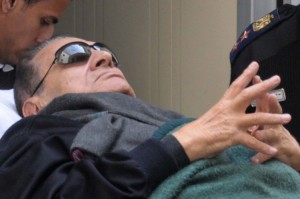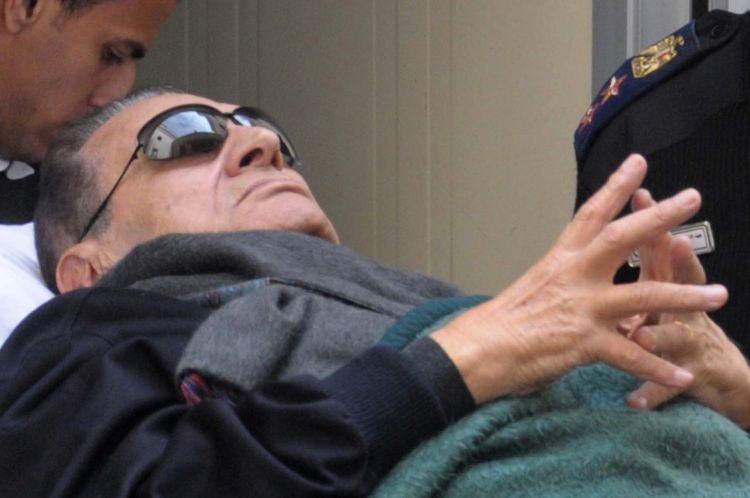
AFP PHOTO
The cessation court has scheduled the review of former President Hosni Mubarak’s life sentence for 23 December. Mubarak and his interior minister, Habib Al-Adly, are appealing the verdict which found them complicit in the murder of protesters during the 25 January Revolution, according to state-owned news agency MENA.
Review proceedings will be overseen by counselor Mohamed Momtaz Metwally
Appeals have also been filed by the public prosecution against the acquittal of Mubarak, his two sons Gamal and Alaa, Hussein Salem and six aides of Al-Adly’s on the charges of abuse of power and bribery. The public prosecution will also challenge the acquittal of those not already convicted of complicity in murdering the protesters.
“Legally speaking, there are several scenarios for the December session,” Assem Kandil, civil rights prosecutor in the case, said. “The court could rule that there has been a mistake in applying the law. The cessation court could also refer the case to a different judicial district.”
Kandil clarified that the appeal carries several options in regards to the verdict itself.
“The appeal filed by the defendants could either have the verdict commuted or leave it as it is,” Kandil said, “while the appeal filed by the public prosecution could have the verdict tightened.”
Ahmed Al-Kilany, member of the civil rights prosecution team in the case of murdered protesters in Suez, expects that none of the previous scenarios shall take place.
“I expect that the [defendants]appeal will be turned down by the cessation court,” Al-Kilany said, “since the rationale behind the court’s verdict was both strong and sufficient.”
Al-Kilany also thinks that the appeal filed by the public prosecution might overturn the acquittals.
“The acquittal of Al-Adly’s six aides, for instance, contradicts Al-Adly’s verdict,” Al-Kilany said, adding that the sentence for such charges would be hard labour.
The Cairo Criminal Court ruled on 2 June, sentencing Mubarak and Al-Adly to life in prison for their complicity in the murder of protesters. The court acquitted of former Head of Central Security Ahmed Ramzy, former Head of General Security Adly Fayed, former Head of State Security Hassan Abdel Rahman, former Cairo Security Director Ismail Al-Sha’er, former Giza Security Director Osama Al-Marassy and former October 6 Security Director Omar Al-Faramawy. These six men were all considered aides to Al-Adly.
The court verdict also acquitted Mubarak, his two sons Alaa and Gamal and businessman Hussein Salem, of abusing their authority and of bribery. Mubarak was also acquitted from the charge of complicity in exporting natural gas to Israel at much lower than the internationally recognised price.


